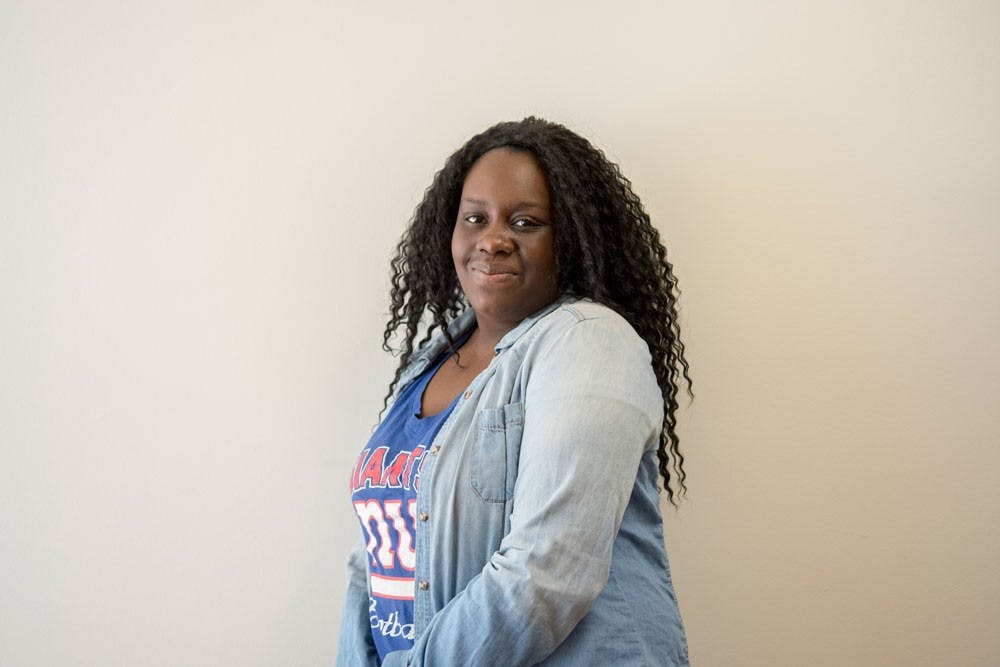Zena Iyekegbe said she didn’t know she was dark-skinned growing up.
“Until someone came up to me and said, ‘You’re as dark as a chalkboard,’” Iyekegbe, a human services and nursing major, said. “[The insults] were constant throughout middle school.”
Iyekegbe said she experienced colorism, or prejudice based on how light or dark a person’s skin is. It was the topic of the African Student Association’s (ASA) and the Intercultural and Diversity Center’s (IDC) panel discussion last Thursday.
On Feb. 18, ASA and IDC screened the documentary “Dark Girls” for about 30 students as part of the IDC’s documentary and movie series exploring different cultures. After watching the documentary, students expressed their own experiences with colorism in a post discussion panel.
The 2012 documentary explores the practice of colorism and uncovering internal prejudices against darker toned women and men of African and Caribbean decent.
While the documentary mainly focuses on biases against darker African American women, it also highlighted the plight of other black ethnicities and the destructive skin-bleaching industry of some African, South American and Caribbean countries.
Aisha Abdelmula, a second-year graduate student and IDC administrator, said collaborating with ASA was an attempt to “get members of the African Diaspora talking about the issues because it affects us all so deeply.”
“There are a lot of students here who come from different facets of the UB community and I’m sure that colorism has affected some of the students that have come here,” she said. “We need to have an analysis of colorism because it is still one of the things we still are not talking about. We accept and normalize things like ‘light skinned versus dark skinned’ or ‘red-boned versus yellow-boned.’ Not enough places are challenging that.”
Many of the students gave their own experiences with colorism in response to the film.
Iyekegbe said she believed racial slurs and remarks can eventually become “psychological” for darker-toned people.
“Words do hurt and [those words] make someone like my skin tone want to hate themselves and use skin bleaching cream,” she said.
Rahaman Adenlola, ASA vice president and a junior exercise major, said he also struggled with colorism growing up.
“In high school and middle school dudes would make fun of me, they would say, ‘Oh you’re so black.’ They didn’t understand the deeper meaning of what they said,” Adenlola said.
Iyekegbe and Adenlola said that colorism is a relevant topic that needs to be addressed and discussed on campus.
Iyekegbe said that while the topic of colorism has been brought up in the past, it needs to “keep coming back” in order to adequately address the issue.
The students who participated in the event are hopeful that this can create a more positive narrative when it comes to confronting colorism. In order for that to happen, they believe that the conversation of colorism should be addressed more at UB.
“I hope that people will take it more seriously,” Iyekegbe said. “To us it’s serious, but to others it might not be but we still need to address it. I think that it should be put out there more often.”
The ASA will continue the discussion of colorism along with other race discussions during their club meetings on Thursdays at 5 p.m. in 330 Student Union.
Delmarie Lewis is a contributing writer and can be reached at arts@ubspectrum.com





